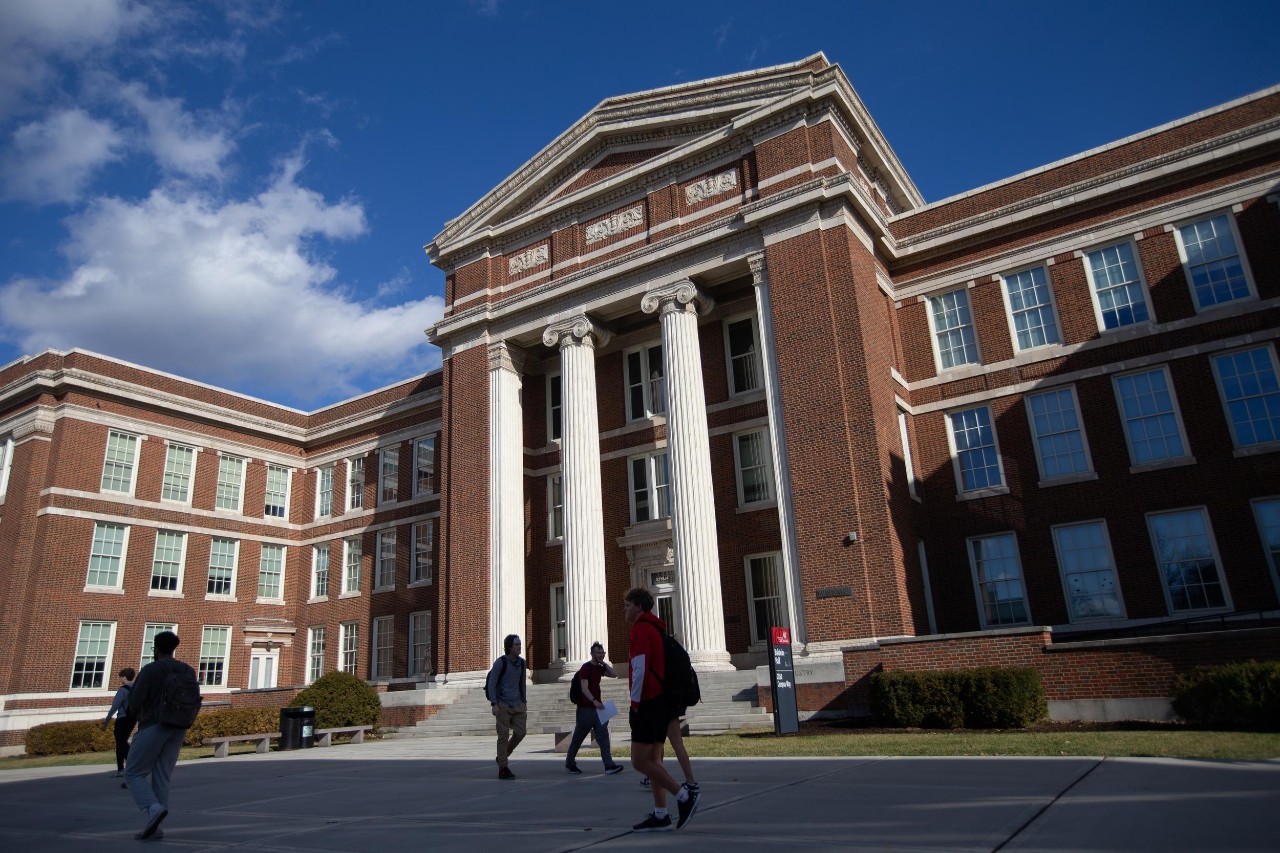
New AI tool assesses risk of self-harm
UC and its research partners develop AI with wide-ranging applications
A diagnostic tool that leverages a powerful new artificial intelligence was able to predict whether patients exhibited suicidal thoughts and behaviors using a quick and simple combination of variables.
Instead of sorting through reams of psychological data, the system focuses on basic demographics, short mental health surveys and a simple ranking task where the patient assigns positive or negative ratings to pictures.
The tool proved as much as 92% effective at predicting four variables relating to suicidal thoughts and behaviors.

Hans Breiter. Photo/Andrew Higley/UC Marketing + Brand
“People have developed good techniques with big data,” said study co-lead author Hans Breiter, a professor of computer science at the University of Cincinnati. “But we have problems interpreting the meaning of many predictions based on big data. Having a small number of variables grounded in mathematical psychology appears to get around this issue and is needed if current machine learning is ever going to approach the issue of artificial general intelligence.”
Published in the journal Nature Mental Health, the study concluded that social and behavioral measures play a key role in predicting suicidal thoughts and behaviors. Researchers hope the tool can be developed into an app used by medical professionals, schools or family members to identify those who are most urgently at risk of self-harm.
A record number of people in the United States died from suicide in 2022. Some populations such as veterans are particularly vulnerable.
“It’s reported we have about 20 suicides each day among veterans in the United States, and a salient number of students. We all can cite statistics to how the American medical system is at a breaking point,” Breiter said. “I wish we’d had this technology sooner. The data strongly argues it would change outcomes.”
While suicide is a leading cause of death in the United States, it affects many other countries as well.
“This issue of suicidality is devastating,” Breiter said. “You see that every spring when kids are taking exams in China, India and Japan. Some kids don’t get good scores and there’s a rash of suicides. The world loses really talented people. Every time I hear about young people committing suicide it’s upsetting.”

UC College of Engineering and Applied Science Professor Hans Breiter is applying artificial intelligence to new applications in health and human behavior. Photo/Andrew Higley/UC Marketing + Brand
UC's research team included Breiter, senior research associates Sumra Bari and Nicole Vike and research associate Byoung-Woo Kim. They collaborated on the study with Northwestern University, Aristotle University of Thessaloniki and the Harvard School of Medicine.
“A system that quantifies the judgment of reward and aversion provides a lens through which we may understand preference behavior,” said Shamal Shashi Lalvani, the study's first author and a doctoral student at Northwestern University. “By using interpretable variables describing human behavior to predict suicidality, we open an avenue toward a more quantitative understanding of mental health, and make connections to other disciplines such as behavioral economics.”
Researchers collected demographics about age, gender at birth, race or ethnicity, highest education level achieved and handedness. Patients were asked to rank a random sequence of 48 pictures on a seven-point “like-to-dislike” scale of 3 to -3 in six categories: sports, disasters, cute animals, aggressive animals, nature and food.
The patients completed a patient health questionnaire and portions of the State-Trait Anxiety Inventory. Researchers also asked the patients to rank their perceived loneliness on a five-point scale.
Using artificial intelligence developed by UC and Northwestern, the diagnostic tool was able to predict four measures of suicidal thoughts and behaviors: passive suicidal ideation, active suicidal ideation, planning for suicide and planning ways to prevent self-harm.
“The usage of a picture rating task may seem simple, but understanding individual preferences and how one evaluates reward plays a large role in shaping personality and behavior,” said co-senior author Aggelos Katsaggelos, a professor of electrical and computer engineering at Northwestern University.
“We find that our results in predicting suicidality exceed typical methods of measurement without using extensive electronic health records,” he said.

Researchers in UC's College of Engineering and Applied Science are using artificial intelligence to develop promising new applications in diverse fields including neuroscience. Photo/Andrew Higley/UC Marketing + Brand
The data was collected from surveys completed in 2021 by 4,019 participants ages 18 to 70 across the United States through Gold Research. The identities of the participants were protected and not shared with researchers. Participants provided informed consent.
Researchers noted that respondents in other countries could have unique cultural influences that affect prediction success. Another potential limitation is the surveys were self-reported rather than through clinical assessments. And the cohort was sampled during the COVID-19 pandemic at a time that has seen higher-than-normal rates of loneliness and self-harm.
Researchers suggested future examinations might be able to leverage contextual risk factors relating to a patient’s age or other demographics to improve predictions. Additional authors include Leandros Stefanopoulos, Martin Block and Nicos Maglaveras.
The study was funded by philanthropist Jim Goetz, UC and the U.S. Office of Naval Research.
Featured image at top: University of Cincinnati researchers developed a diagnostic tool that leverages artificial intelligence to predict whether patients exhibited suicidal thoughts and behaviors. Photo/Unsplash
Editor's note: If you are experiencing a mental health crisis, call or text 988 to connect directly to the Suicide and Crisis Lifeline.

UC College of Engineering and Applied Science Professor Hans Breiter is studying the intersection of neuroscience and artificial intelligence in his engineering lab. Photo/Andrew Higley/UC Marketing + Brand
Next Lives Here
The University of Cincinnati is leading public urban universities into a new era of innovation and impact. Our faculty, staff and students are saving lives, changing outcomes and bending the future in our city's direction. Next Lives Here.
Related Stories
Why do female caribou have antlers?
February 24, 2026
Researchers at the University of Cincinnati discovered that female caribou feed extensively on shed antlers they find while grazing to supplement their diet with important minerals they need to raise calves. This could explain why female caribou, unique among deer, have antlers.
DTS hosts successful annual conference on AI and emerging tech
February 23, 2026
Hundreds of University of Cincinnati students, faculty, and staff members turned out for the third annual Digital Technology Solutions (DTS) AI & Emerging Technology Symposium, Wednesday, Feb. 18, 2026, in UC's Tangeman University Center.
UC/UC Health Addiction Center to advance addiction research, treatment and education
February 23, 2026
The University of Cincinnati and UC Health have launched the UC/UC Health Addiction Center, a multidisciplinary initiative designed to unite research with clinical and educational expertise to improve addiction prevention and treatment outcomes in the Greater Cincinnati community and beyond.
